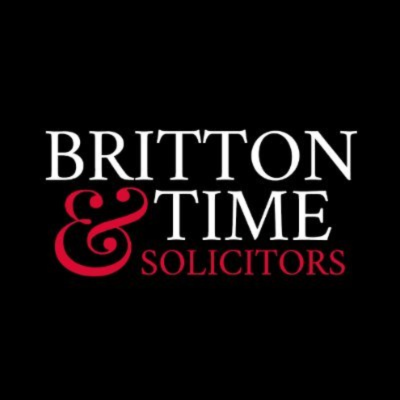
Breakdown:
- How To Prove Workplace Harassment
- Key Evidence You Need To Prove Workplace Harassment
- Can A Single Incident Be Considered Workplace Harassment?
- Keeping A Record Of Workplace Incidents
- How The Uk Courts Assess Harassment Claims
- Workplace Harassment And Witness Testimonies
- Legal Advice And Support In The Uk
Book A Consultation
How to Prove Workplace Harassment
Dealing with workplace harassment can be challenging and emotionally draining. Our comprehensive guide walks you through the essential steps to document, understand, and address inappropriate behaviour in your workplace. We’ll explore key strategies for gathering evidence, recognising harassment, and protecting your professional rights. Learn how to build a strong case, understand legal protections, and navigate complex workplace dynamics.
If you’re experiencing workplace harassment and feeling overwhelmed, our guide provides practical insights into collecting evidence, understanding your rights, and taking decisive action to protect your professional wellbeing. If you require further assistance, please don’t hesitate to contact us or fill in a form to reach out for support.
Key Evidence You Need to Prove Workplace Harassment
Workplace harassment can feel overwhelming, but gathering the right evidence is crucial to protecting yourself. When documenting inappropriate behaviour, focus on collecting clear, compelling proof that shows a pattern of misconduct.
Start by preserving digital communications like offensive emails, inappropriate text messages, and screenshots of harmful workplace interactions. Witness statements are equally powerful – ask colleagues who have observed problematic behaviour to provide written accounts of what they've seen.
Key evidence types include:
- Detailed email exchanges demonstrating discriminatory language
- Screenshots of inappropriate digital communications
- Recorded conversations (with legal consent)
- Contemporaneous notes documenting specific incidents
- Performance reviews showing sudden negative changes
- Witness statements from supportive colleagues
Physical documentation strengthens your case significantly. Each piece of evidence builds a comprehensive picture of the harassment, helping you demonstrate the impact on your professional environment.
If you're experiencing workplace harassment, don't suffer in silence. Contact us today and submit our lead form – we'll connect you with experienced, SRA-regulated solicitors who specialise in employment disputes.
Can a Single Incident Be Considered Workplace Harassment
While harassment often involves repeated behaviour, UK employment law recognises that a single incident can constitute serious workplace harassment. The key factor is the severity and impact of the event. You might experience harassment through a significant one-off occurrence that creates a hostile or intimidating work environment.
For instance, imagine a situation where a colleague makes an explicitly racist comment during a team meeting, or a manager makes an inappropriate sexual advance that leaves you feeling deeply uncomfortable. These scenarios can potentially meet legal harassment thresholds if they:
- Involve discriminatory language
- Cause significant emotional distress
- Target protected characteristics
- Create a threatening workplace atmosphere
The legal assessment focuses on how a reasonable person would perceive the incident’s impact. Courts consider the psychological harm, the context of the interaction, and whether the behaviour undermines your dignity or creates an offensive environment.
If you’re struggling with a workplace incident that feels like harassment, submit our lead form, and we’ll match you with specialist SRA-regulated solicitors who can provide expert guidance on your specific situation.
Keeping a Record of Workplace Incidents
Documenting workplace harassment requires meticulous attention to detail and strategic record-keeping. When experiencing challenging workplace situations, you'll want to create a comprehensive and secure evidence trail. Begin by noting specific details of each incident, including precise dates, times, and locations.
- Write down verbatim quotes
- Identify potential witnesses
- Capture the emotional and professional impact
Secure storage is paramount. Consider using password-protected digital files or encrypted storage solutions to protect sensitive information. Physical copies should be kept in a locked, private location away from your workplace.
- Avoid storing documents on work devices
- Use secure personal cloud storage
- Maintain a chronological log of events
The most critical aspects include documenting specific behaviours, incident frequency, and the broader workplace context. Your records should demonstrate how the incidents affect your work environment and professional wellbeing. If the situation escalates, these detailed notes become crucial evidence for potential legal proceedings.
Contact us and submit a lead form – we'll match you with SRA-regulated solicitors who specialise in workplace harassment cases and can provide expert guidance.
How the UK Courts Assess Harassment Claims
UK employment tribunals meticulously evaluate harassment cases by examining crucial elements that determine the legitimacy of a claim. You might encounter harassment through persistent negative behaviours that target your dignity and create an intimidating workplace environment. These can include
- repeated inappropriate comments
- deliberate exclusion
- undermining professional capabilities
- discriminatory remarks targeting protected characteristics like age, gender, race, or disability.
The legal assessment focuses on several key criteria: the reasonableness of your perception, the severity and frequency of incidents, and the tangible impact on your professional and personal wellbeing. For instance, a manager consistently making derogatory comments about your ethnic background or a colleague repeatedly making unwelcome sexual advances would likely constitute harassment.
Tribunals consider whether the behaviour is unwanted, violates your dignity, or creates a hostile atmosphere. The psychological harm and context of interactions are critically evaluated to determine if the conduct crosses legal boundaries.
Contact us and submit a lead form – we'll match you with SRA-regulated solicitors who specialise in workplace harassment cases and can provide expert guidance.
Workplace Harassment and Witness Testimonies
When facing workplace harassment, witness statements become your most powerful ally. These independent accounts can transform your case, providing critical evidence that substantiates your experience. Consider scenarios where colleagues might observe inappropriate behaviours: a manager consistently making discriminatory remarks, colleagues witnessing repeated undermining tactics, or documented patterns of exclusion.
Effective testimony gathering requires strategic approach:
- Document incidents immediately
- Request written statements while memories remain fresh
- Capture specific details, including dates and precise language used
- Ensure witnesses feel protected and comfortable sharing their observations
Your witness statements should focus on objective, factual descriptions. Avoid emotional language and concentrate on specific, verifiable interactions. Professional witnesses can corroborate patterns of behaviour that demonstrate systematic harassment, providing independent verification of your experiences.
Facing these challenging situations requires courage and meticulous documentation. By collecting robust witness evidence, you strengthen your position and increase the likelihood of a successful resolution.
Contact us and submit a lead form – we’ll match you with SRA-regulated solicitors specialising in employment disputes.
Legal Advice and Support in the UK
Workplace challenges can feel daunting, but professional legal support transforms your approach. Imagine a young professional facing workplace discrimination: without guidance, they might feel powerless, but expert advice empowers them to understand their rights and take decisive action.
Early intervention is crucial. By seeking professional support, you can prevent small issues from escalating into major disputes. Employment lawyers and Citizens Advice Bureau provide strategic guidance tailored to your specific situation. Whether you’re experiencing persistent bullying, unfair treatment, or discriminatory practices, expert advice helps you:
- Understand your legal protections
- Document incidents effectively
- Develop a strong, evidence-based strategy
- Navigate complex workplace regulations
Consider a scenario where a junior employee faces repeated inappropriate comments from a senior manager. Professional legal support can help them gather evidence, understand their rights, and pursue appropriate action confidently.
Don’t let uncertainty hold you back. For additional support, explore comprehensive advice from the UK government on handling workplace disputes by visiting their official guidance page. Alternatively, contact us and submit a lead form – we’ll match you with SRA-regulated solicitors who can provide expert guidance and support in your employment journey.
Related Articles

Maternity Pay for the Self-Employed: Explained
Maternity Pay For Self Employed Eligibility Criteria For Maternity Allowance How Much Maternity Pay Can Self-Employed Women Receive How Many Weeks Does Maternity Allowance Cover Is Maternity Pay For Self Employed Taxable How To Apply For Maternity Allowance Using...
Join Our Newsletter
Top Reasons to Choose Voluntary Redundancy
Gaining Financial Benefits From Voluntary Redundancy Opportunity For Career Change Taking Control Of Your Future Creating Work Life Balance Escape From Unsatisfying Roles Book A ConsultationGaining Financial Benefits from Voluntary Redundancy When your company...
How to Document Harassment at Work Legally
Maintain A Detailed Incident Log Collect And Organise Supporting Evidence Why Documenting Minor Incidents Matters Seek Corroboration From Witnesses Book A ConsultationMaintain a Detailed Incident Log When dealing with workplace harassment, your documentation becomes...
Holiday Entitlement While on Maternity Leave
What Is Holiday Entitlement During Maternity Leave? Can Holiday Be Used Instead Of Extending Maternity Leave? Do Public Holidays Count Towards Accrued Entitlement? How To Calculate Holiday Accrual During Maternity Leave When Can Accrued Holiday Be Taken? Carrying Over...
Taking Legal Action for Pregnancy Discrimination
What Is Pregnancy Discrimination At Work Taking Legal Action Against Pregnancy Discrimination Recognising Examples Of Pregnancy Discrimination At Work Steps To Take If You Experience Pregnancy Discrimination How Employers Can Avoid Pregnancy Discrimination Claims Book...








